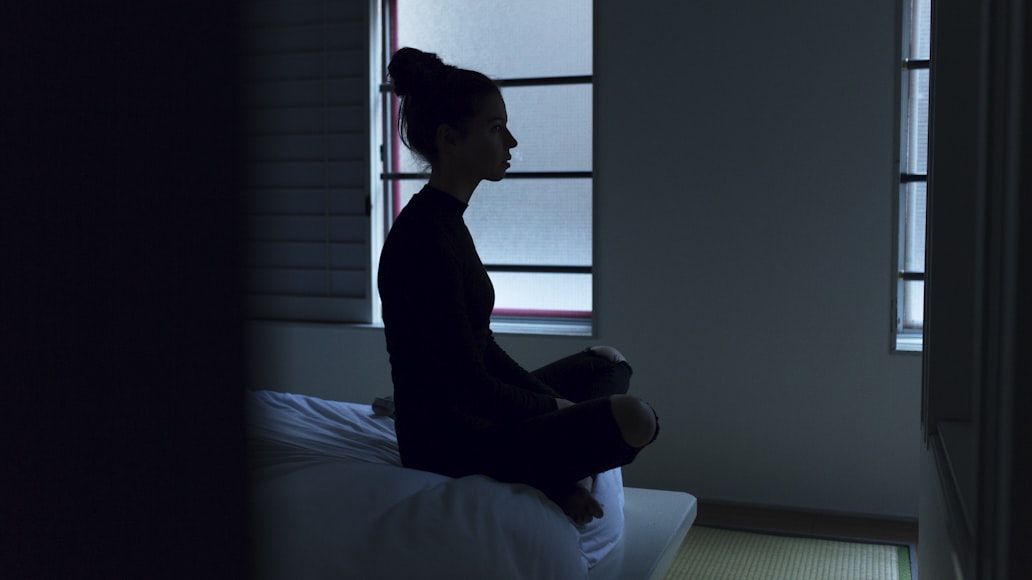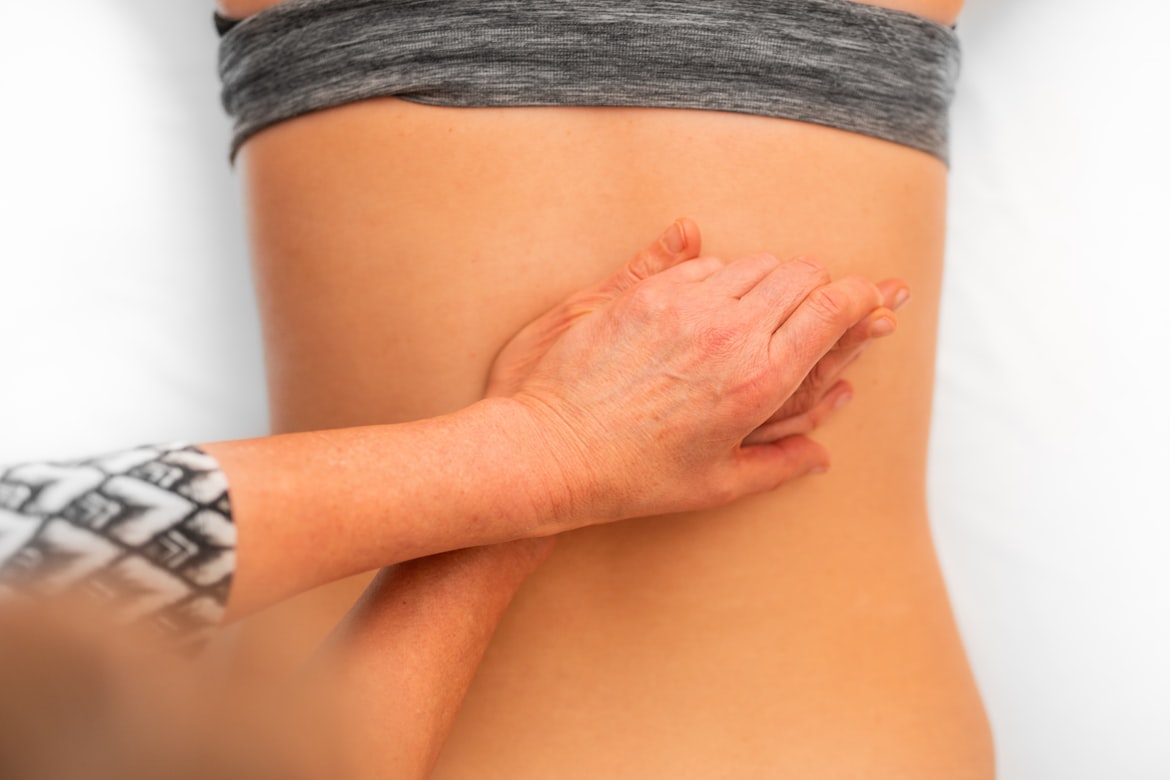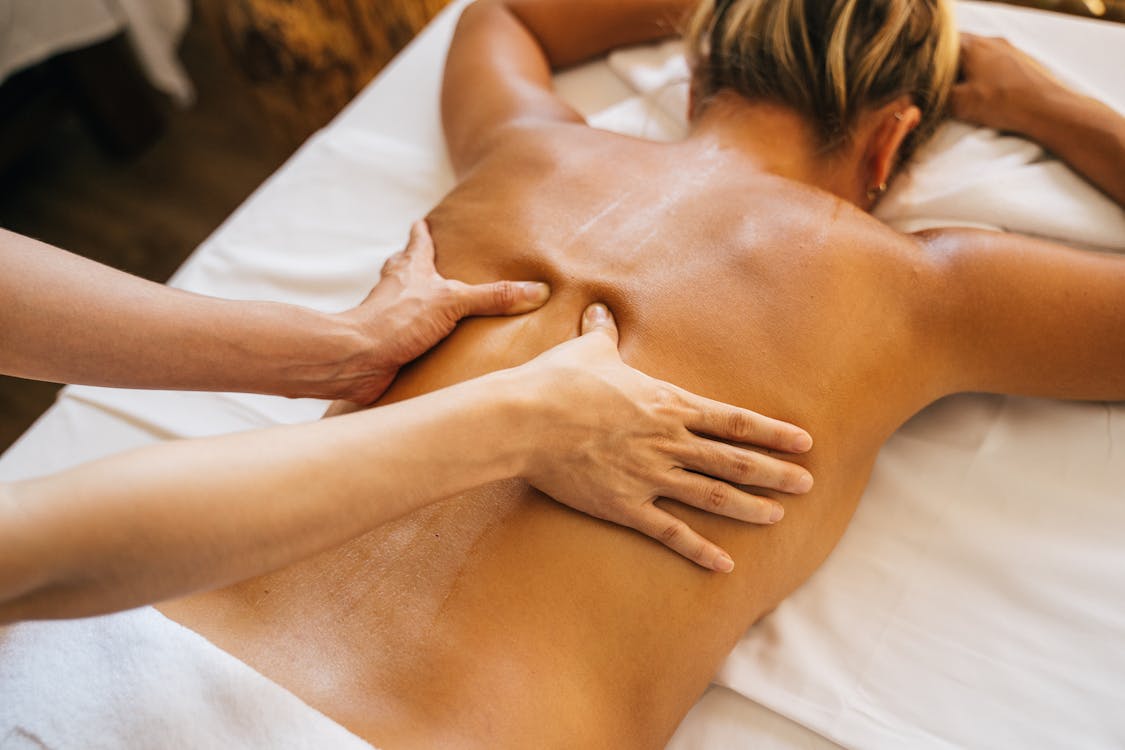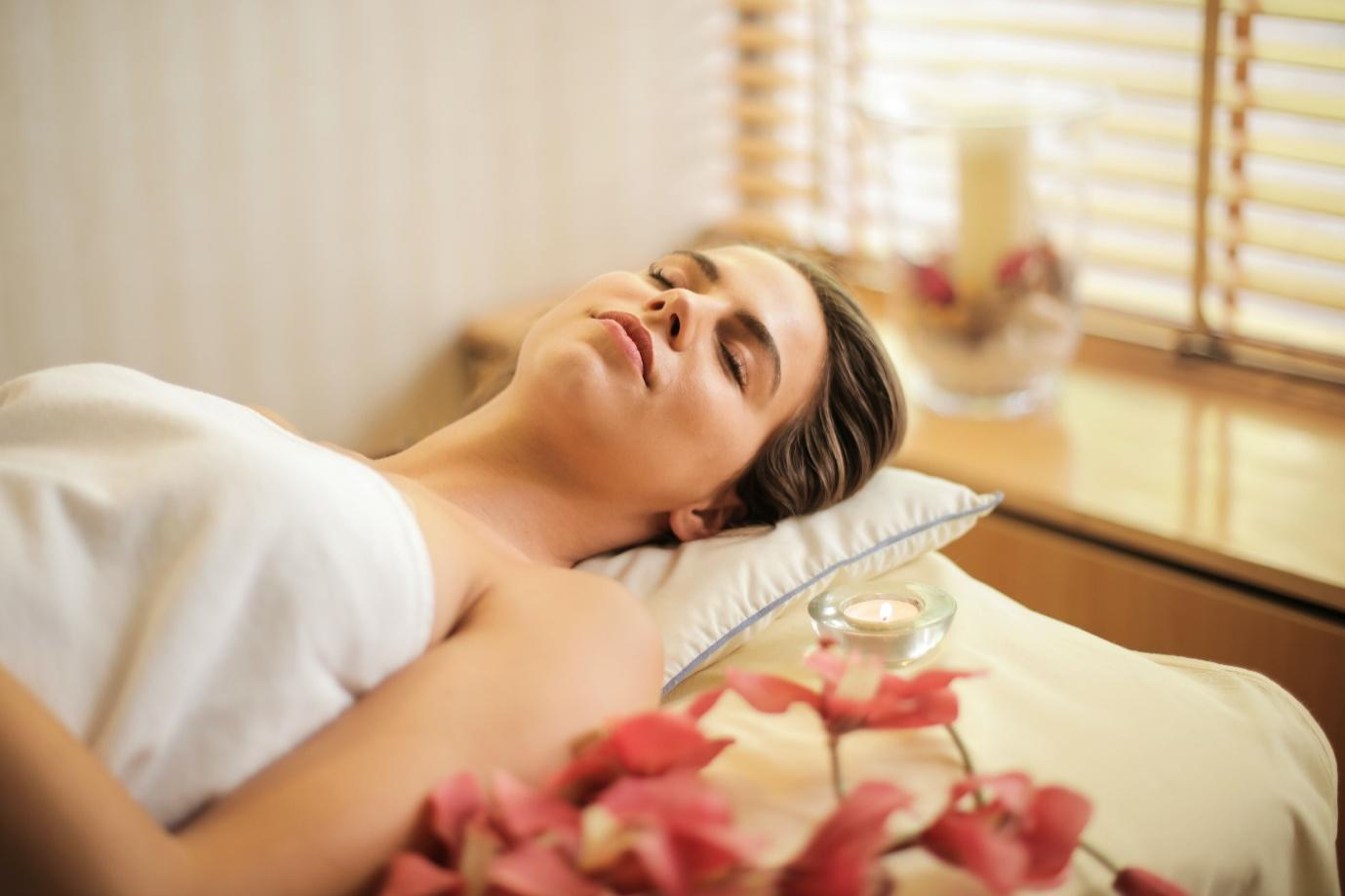Do you struggle with getting a good night’s sleep? Lack of quality sleep can affect our overall well-being, making it difficult to focus and be productive during the day.
Luckily, there is a natural and effective solution that doesn’t involve medication or counting sheep: massage therapy! This post explores the connection between Asian massage techniques and sleep and how massage promotes relaxation and induces sleep.
Let’s dive into all things related to getting those sweet Z’s through the power of touch!
Understanding the Connection between Massage and Sleep
The relationship between massage and sleep has been studied for years, with scientists discovering a strong connection. Massage therapy can help to improve the duration and quality of sleep.
Massage therapy has been found to have a significant connection with sleep, as it promotes relaxation, reduces muscle tension, improves circulation, balances the nervous system, and helps manage anxiety and insomnia.
Massage creates a conducive environment for a restful and rejuvenating slumber by releasing endorphins and stimulating the parasympathetic nervous system. By incorporating regular massage sessions into one’s self-care routine, individuals can experience improved sleep quality and wake up feeling refreshed and revitalized.
Importance of Quality Sleep for Overall Well-Being
It’s easy to overlook the significance of quality sleep for our overall well-being. Yet, during those restful hours, the body undergoes essential restoration and rejuvenation.
Quality sleep is crucial in maintaining optimal physical health, mental clarity, and emotional stability. When we sleep, the body engages in vital processes such as tissue repair, hormone regulation, and immune system strengthening.
Adequate sleep enhances cognitive functions like memory consolidation, attention span, and problem-solving abilities. Moreover, a good night’s sleep directly impacts our emotional well-being, helping to regulate mood, reduce stress, and promote better cognitive health.
Neglecting the importance of quality sleep can lead to various health issues, including chronic fatigue, weakened immune function, impaired cognitive performance, and an increased risk of developing conditions like obesity, diabetes, and cardiovascular disease.
To prioritize our overall well-being, it is crucial to recognize the profound impact of quality sleep on our physical health, mental acuity, and emotional balance.
By adopting healthy sleep habits and ensuring sufficient rest, we can unlock the countless benefits of rejuvenating sleep and enjoy a more vibrant and fulfilling life.
Insomnia and Sleep Disorders
Insomnia and sleep disorders are prevalent issues affecting millions worldwide, wreaking havoc on their overall well-being. Insomnia is when individuals have difficulty falling or staying asleep.
Various factors, including stress, anxiety, depression, medical conditions, medications, or lifestyle habits, can cause it. Sleep disorders encompass a range of conditions that disrupt sleep patterns and quality. These disorders include sleep apnea, restless leg syndrome, and parasomnias.
The Impact of Insomnia and Sleep Disorders
Physical Consequences of Sleep Deprivation
The impact of insomnia and sleep disorders goes far beyond feeling tired during the day. Sleep deprivation can lead to many physical, mental, and emotional problems. Physically, it weakens the immune system, increases the risk of chronic conditions like obesity, diabetes, and cardiovascular diseases, and impairs motor functions, making individuals more prone to accidents.
Mental and Cognitive Impairments
Mentally, sleep disorders affect cognitive functions such as memory, concentration, and problem-solving abilities, hindering performance at work or school. Emotionally, sleep disorders contribute to mood swings, irritability, and a higher likelihood of developing anxiety and depression.

Addressing Insomnia and Sleep Disorders
Seeking Professional Help
Addressing insomnia and sleep disorders is crucial for restoring overall well-being. Seeking professional help from healthcare providers specializing in sleep medicine is recommended. They can diagnose the underlying causes and provide appropriate treatments, including lifestyle modifications, cognitive-behavioral therapy, medication, or devices for sleep apnea.
Practical Strategies for Better Sleep
Establishing a consistent sleep routine, creating a sleep-friendly environment, and practicing relaxation techniques can also improve sleep quality. Making changes such as avoiding electronic devices before bed, creating a calming bedtime routine, and ensuring a comfortable sleep environment can significantly improve sleep patterns and overall well-being.
Prioritizing Restful Sleep for a Healthier Life
Recognizing the Significance of Sleep
Recognizing the significance of sleep and managing insomnia and sleep disorders is essential for leading a healthier and more fulfilling life. Prioritizing restful sleep improves physical health and mental clarity and enhances emotional well-being, allowing individuals to embrace each day with vitality and resilience.
By addressing sleep issues and adopting healthy sleep habits, individuals can unlock the countless benefits of quality sleep and experience a positive transformation in their overall well-being.
The Impact of Massage on Sleep Quality
Massage is known for its relaxation benefits and ability to reduce stress and anxiety. But did you know that massage can also impact the quality of your sleep? Studies have shown that regular massage therapy can help improve sleep patterns, allowing individuals a better night’s rest.
One way massage improves sleep quality is by promoting the release of serotonin, a hormone that regulates mood, appetite, and sleep. Serotonin helps promote feelings of calmness and relaxation, making it easier for individuals to fall asleep faster and stay asleep longer.
Another way in which massage impacts sleep quality is by reducing muscle tension. Many people carry muscle tension due to stress or physical activity throughout the day. Massage helps to loosen these tense muscles, allowing them to relax fully during sleep.
In addition to these benefits, massage has been shown to decrease levels of cortisol (a stress hormone) in the body. High levels of cortisol have been linked with poor-quality sleep and insomnia. By reducing cortisol levels through massage therapy, individuals may experience more restful and rejuvenating rest periods.
Need a good night’s rest? Contact Asian Massage 2 Hotels for massage services in Las Vegas.
How Massage Promotes Relaxation and Induces Sleep
Massage therapy is a widely used technique to promote relaxation in the body. By targeting specific pressure points, massage can help release muscle tension and promote a sense of calmness throughout the body. This physical response creates an ideal environment for inducing sleep.
One way massage promotes relaxation is by activating the parasympathetic nervous system. This system slows the heart and breathing rates, lowering blood pressure and stress levels. As a result, your mind becomes more relaxed, helping you let go of negative thoughts or worries that may keep you awake at night.
Another way massage induces sleep is through its ability to increase serotonin levels within the brain. Serotonin is important in regulating mood, appetite, and sleep patterns. When serotonin levels are low, it can lead to feelings of anxiety or depression which can significantly impact our ability to fall asleep. Massage increases serotonin production by stimulating specific nerve endings on the skin’s surface.
In addition to these physiological effects, regular massages can have psychological benefits contributing to better sleep quality over time. Taking time out for yourself and prioritizing self-care sends a message to your brain that it’s okay to slow down and relax – something we often forget in today’s fast-paced world.
Massage therapy offers numerous benefits for improving sleep quality, including reduced muscle tension/soreness; increased circulation; lowered stress/anxiety levels; enhanced mood; improved flexibility/mobility – all leading toward better restorative healing during sleeping hours!

Effects of Massage on Stress and Anxiety Reduction for Better Sleep
Stress and anxiety can be major hindrances to a good night’s sleep. Fortunately, massage therapy is an effective method for reducing stress and anxiety, which in turn promotes better sleep quality.
Studies have shown that massage reduces cortisol levels, the hormone responsible for stress. This reduction in cortisol levels leads to relaxation and improved mood. As a result, people who receive regular massages are more likely to sleep better than those who do not.
Massage also triggers the release of serotonin and endorphins – neurotransmitters that promote happiness and well-being. These chemicals help reduce anxiety by calming the nervous system, making it easier to drift off into a peaceful slumber.
Moreover, some massage techniques target specific pressure points in the body that are associated with stress relief. Tension is released from muscles throughout your body by applying pressure on these points through various techniques such as kneading or tapping.
Receiving regular massages can lead to long-term benefits such as increased energy levels during daytime to reduced fatigue caused by lack of quality sleep. So, if you’re looking for ways to improve your mental health while getting some much-needed rest at night, consider adding regular massages to your self-care routine!
Massage Techniques for Improved Sleep
Massage therapy offers many techniques to help induce relaxation and improve sleep quality. Here are some popular massage modalities known for their relaxation benefits:
Swedish Massage
This is one of the most common types of massage therapy. It involves long, gliding strokes, kneading, and circular movements to promote relaxation. Swedish massage can help release muscle tension, reduce stress, and create a sense of tranquility conducive to better sleep.
Deep Tissue Massage
Deep tissue massage focuses on reaching the deeper muscles and connective tissue layers. It uses slower, more intense pressure to target chronic muscle tension and knots. By relieving deep-seated tension, deep tissue massage can help relax the body and mind, promoting better sleep.
Aromatherapy Massage
Aromatherapy massage combines traditional massage techniques with the use of essential oils. These oils, such as lavender, chamomile, or ylang-ylang, are carefully selected for their calming properties. The scent of these oils can promote relaxation and help alleviate stress and anxiety, contributing to a more restful sleep.
Hot Stone Massage
Hot stone massage uses heated stones placed on specific areas of the body to relax muscles and improve blood circulation. It induces deep relaxation and can lead to better sleep.

Thai Massage
Thai massage combines acupressure and deep compressions to release tension and promote energy flow throughout the body. It is performed on a mat on the floor, with the recipient wearing loose and comfortable clothing. Thai massage can improve flexibility, reduce muscle stiffness, and induce deep relaxation, making it beneficial for better sleep.
Shiatsu Massage
Originating from Japan, Shiatsu massage involves applying pressure to specific points on the body using fingers, palms, or thumbs. This technique aims to stimulate the body’s energy flow and promote relaxation. Shiatsu massage can help reduce stress, relieve muscle tension, and improve sleep quality.
Reflexology
Reflexology focuses on applying pressure to specific points on the hands, feet, and ears that correspond to different organs and systems of the body. By stimulating these points, reflexology can help restore balance and promote relaxation. It can be an effective technique for reducing stress and promoting better sleep.
It’s important to note that individual preferences and needs may vary when choosing the right massage technique for relaxation and sleep improvement. It’s advisable to consult with a licensed massage therapist who can assess your specific needs and recommend the most suitable technique for you.
Precautions and Considerations when Using Massage for Better Sleep
When it comes to using massage for better sleep, there are some precautions and considerations that one should keep in mind.
If you have any medical conditions or injuries, it’s important to consult with your healthcare provider before getting a massage. Some conditions may require modifications to the massage techniques or may even contraindicate the massage altogether.
It’s also important to ensure you’re comfortable throughout the entire experience. If you feel uncomfortable at any point during the session, let your therapist know so they can adjust accordingly.
In-room massage can be incredibly relaxing and beneficial for improving sleep quality. You can get Asian massage therapy without having to leave your hotel room! What more could you want? Contact Asian Massage 2 Hotels to get a good night’s sleep. We offer various kinds of Asian massage therapies, including Shiatsu massage, sports massage, and four hands massage to customers in their hotel rooms in Las Vegas.
Contact us right away!


